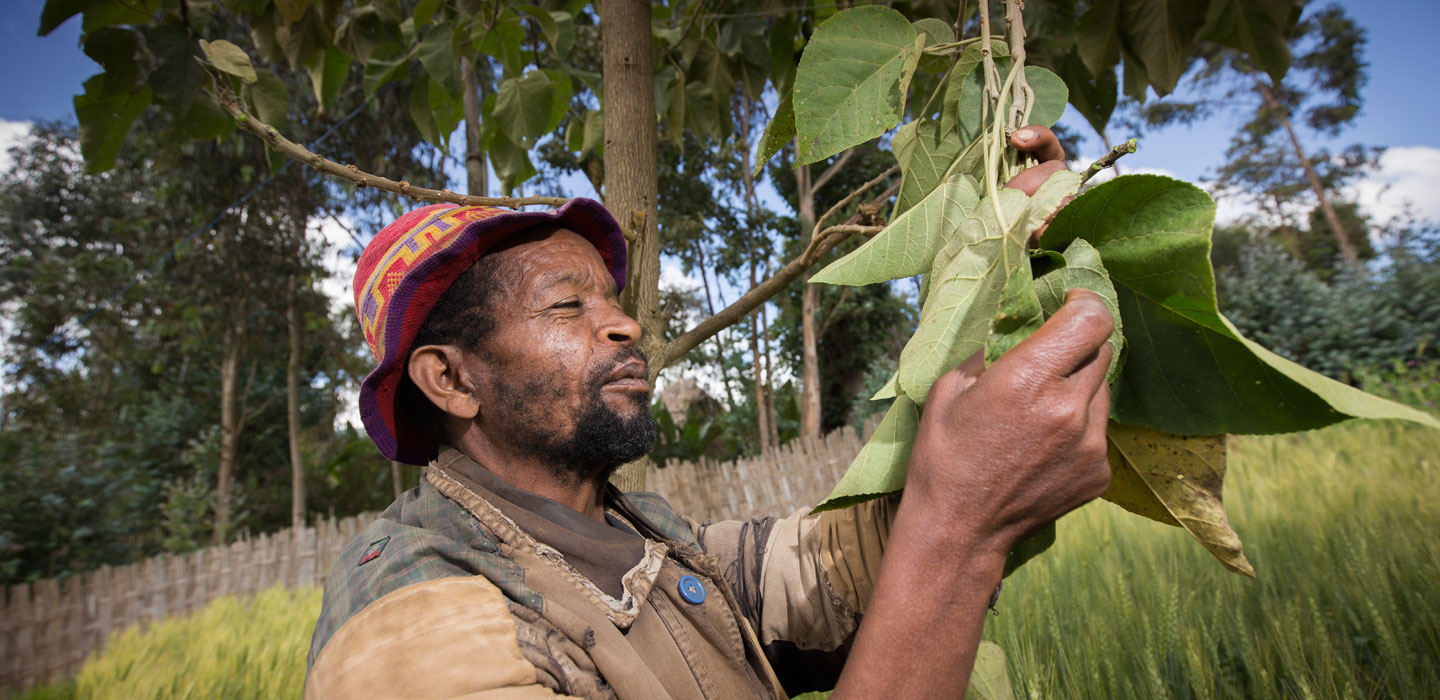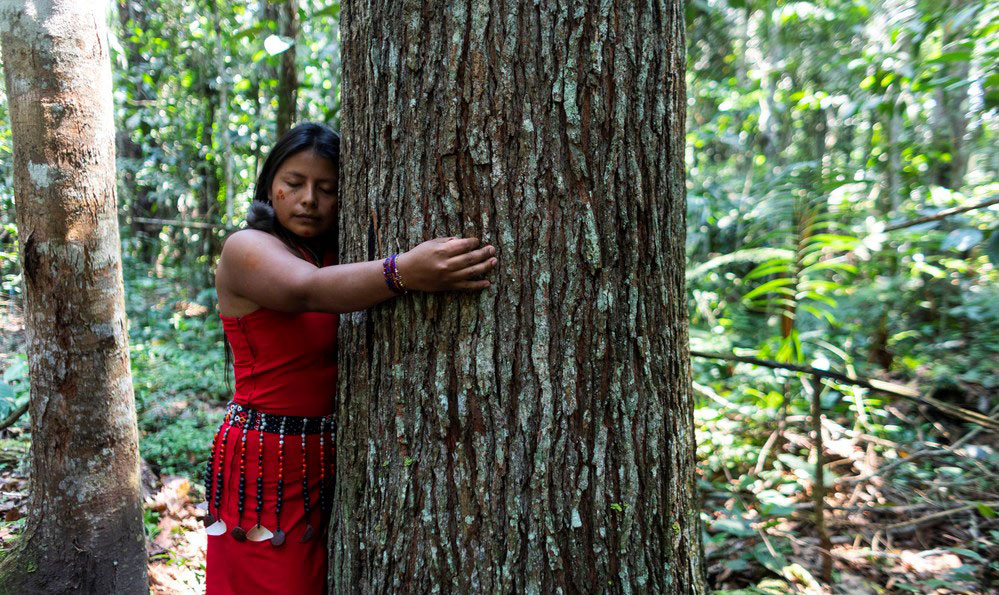Rural people rely on biodiversity. Here's how IFAD protects it
IFAD Asset Request Portlet
Asset Publisher
Rural people rely on biodiversity. Here's how IFAD protects it
Estimated reading time: 3 minutes
Biodiversity is essential to our planet’s survival. It supports our most vital needs, like food and water, and provides resilience in the face of one of our greatest threats: climate change.
But far from the hustle and bustle of our urban sprawls, biodiversity is especially important for small-scale farmers, whose livelihoods and prosperity largely depend on natural resources.
This is why, in 2022, we rolled out our first Biodiversity Strategy, outlining IFAD’s commitments to further integrate biodiversity into our projects, and balance conservation goals with the rights and wellbeing of rural communities.
Here is how we are doing that.
Working hand in hand with Indigenous Peoples and local communities
 |
| IFAD projects draw on traditional knowledge of biodiversity to adapt to climate change. © IFAD/Giancarlo Shibayama |
With eighty per cent of the world’s remaining biodiversity in indigenous territories, Indigenous Peoples and other local communities play a critical role in safeguarding biodiversity. That's why IFAD works with these groups to ensure they have full and effective participation in decision-making.
What's more, IFAD funds projects designed and implemented by indigenous communities, drawing on their traditional knowledge of biodiversity to adapt to and mitigate climate change. Like in Morocco, where an IPAF-funded project raised awareness of the importance of preserving the argan tree so the Amazigh women can thrive.
Healthy planet, healthy people
To have healthy people, we need healthy ecosystems. Two in three IFAD projects that champion biodiversity also strengthen nutrition diversity, in turn making for healthier diets and healthier people.
In Brazil, the IFAD-supported PSA project improved market access for women and Indigenous Peoples who cultivated a wide array of traditional crops. This meant that local people could have a healthier, more diversified and eco-friendly diet, supplied by vulnerable groups.
But healthy diets also depend on healthy farming practices. This is why we integrate agroecology—an ecological approach to agriculture—in 77 per cent of our projects and are committed to scaling this up.
Financing people, nature and climate
Since 2000, IFAD has invested more than US$ 4 billion in programmes to combat land degradation and promote sustainable land management. For example, ASAP helps countries adapt to climate change through nature-based solutions.
We help countries access the Global Environment Facility and co-lead its Food Systems Integrated Program. We also assemble finance from the Green Climate Fund.
But we can’t face the biodiversity crisis alone. An all-hands-on-deck approach is needed. That's why we promote financial mechanisms to attract private investment for conservation efforts. For example, the Upper-Tana Water Fund in Kenya provides vital public-private capital to communities who sustainably manage the land and protect water flowing into the country’s urban areas.
Much more still needs to be done and sustainable agriculture is severely underfunded. By 2030, IFAD aims to dedicate a third of climate finance to nature-based solutions.
Strengthening partnerships and knowledge
A strong business case and rigorous evidence are essential to mobilizing finance. That's why we train people and generate knowledge to not only develop effective projects but also to secure funding to do more of what works.
Our Core Biodiversity Indicator visualises how IFAD projects are improving plant and animal biodiversity and enhancing the economic value of nature through a geo-spatial tool.
To share what we know, we established a biodiversity Community of Practice and contribute to dedicated platforms, including the UN Decade on Ecosystem Restoration.
As the need to protect nature's wonderous variety becomes ever more urgent, a global movement to conserve biodiversity is awakening. For example, the Kunming-Montreal Global Biodiversity Framework lays out the ways in which we can create a world where humans and nature can live in harmony. By supporting this framework and through our own projects, IFAD is not only championing biodiversity but also further integrating it into our work around the world.
Get in touch with IFAD's biodiversity team by emailing [email protected].
Publication date: 22 May 2023